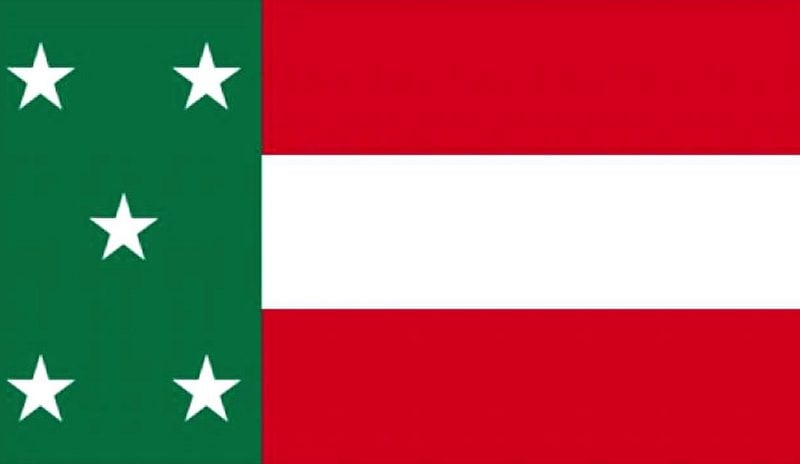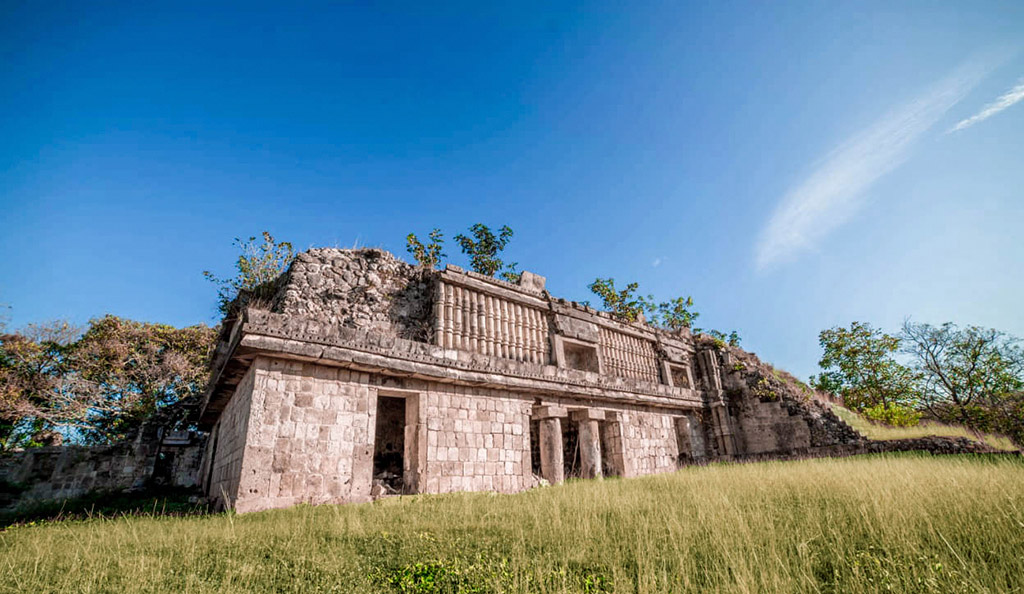 Did you know that the Yucatan Peninsula was separated from Mexican territory and proclaimed itself a Republic? Well, it didn't just happen once, but twice! Join us to discover this historical chapter.
Did you know that the Yucatan Peninsula was separated from Mexican territory and proclaimed itself a Republic? Well, it didn't just happen once, but twice! Join us to discover this historical chapter.
Around 1841, when Mexico had barely been independent for 20 years, there was a political conflict between the centralist government and those of some states. The centralist government did not allow the states to elect their own representatives; This generated special discontent in Yucatán, which historically has been a hotbed of liberal ideas and sought to maintain its own autonomy and sovereignty.
First independence of Yucatán: 1841-1843
In March 1841, the “Barbachanistas” (commanded by Don Miguel Barbachano and Don Martín Peraza) requested the governor to declare the state of Yucatán independent of the government of Mexico. On October 1, 1841, the local Chamber of Deputies approved the Act of Independence of the Peninsula, establishing that "the people of Yucatán, in the full use of their sovereignty, establish themselves as a free and independent republic of the Mexican nation." At that time Yucatán encompassed the three states of the Peninsula, including Campeche and the territory of Quintana Roo.
The centralist government of Mexico did not accept this independence. On the one hand, he sent a military advance to confront the separatists in what is now known as Hacienda Pacabtún in Mérida; On the other hand, the closure of trade between Yucatecan and Mexican ports affected the economy of Yucatán. Finally, Antonio López de Santa Anna, then president, signed on December 5, 1843 the agreements that granted Yucatán full autonomy, with the condition that it be reintegrated into Mexico.
Yucatecan Constitution of 1841
During this “independent” period there were important moments at the legislative level. One of the leaders of the movement, Miguel Barbachano, drafted the Constitution of Yucatán of 1841, which stood out for recognizing religious freedom, respect for individual guarantees and the figure of protection.
Second independence of Yucatán: 1846-1848
Towards the end of 1845, the agreements that the Mexican government signed granting its autonomy to Yucatán were suppressed. Consequently, on January 1, 1846, the Legislative Assembly of Yucatán once again declared Yucatán independent of Mexican territory. This second independent period did not last long, since the crisis generated by the Caste War between Mayans and mestizos, with clashes and deaths on both sides, forced the rulers to ask for military help from the Mexican government in exchange for the reincorporation of Yucatán.
On August 17, 1848, Miguel Barbachano decreed the reincorporation of Yucatán into the Mexican federation, definitively closing this separatist chapter. A separate chapter is the separation of Campeche as an independent state.
Flag of the Republic of Yucatan
Being an independent nation, Yucatán made its own flag. Its colors (green, white and red) evoke the colors of the three guarantees, the same ones used in the national flag. On the left side, on a green canvas that symbolized hope, there were five white stars that represented the departments into which the state was divided: Mérida, Izamal, Valladolid, Tekax and Campeche. On the right side, in red and white, three stripes symbolizing courage.
Despite the re-annexation of Yucatán to Mexico, the Yucatecan flag continued to be a symbol of pride for the inhabitants of the state; In 2023, after a reform to the Mexican Political Constitution that allows it, a monumental version of what was once the Yucatecan separatist flag was raised in Mérida.
Yucatan Anthem
Although Yucatán was the first state of the Republic to have its own anthem, the Yucatecan anthem is not part of the independent life of the state, as it was released almost 20 years after its reincorporation into Mexico.
Written by Manuel Palomeque Solís, the “Patriotic Anthem” of Yucatán tells us about the achievements and glories of the nation, inspired by Mexico's triumph over the French empire. It was read for the first time on July 4, 1867 at the Government Palace of Mérida, in an event to celebrate the execution of Maximilian of Habsburg and the taking of Mexico City by the republican troops that supported Benito. Juarez. On September 15 of the same year, the anthem was premiered, already set to music by the Yucatecan composer José Jacinto Cuevas.
Lyrics of the Yucatan Anthem
Letra: Manuel Palomeque Solís
Música: José Jacinto Cuevas
Al grito de guerra despierta el valor
y el aire se inunda con bélico son.
Haced compatriotas que truene el cañón,
lloviendo metralla sobre el invasor
El cinco de mayo, nos preste su sol
que eclipsa la estrella de Luis Napoleón.
El mundo nos mira, con admiración
y a México envidia su claro blasón.
Vino el águila esclava de Europa
sancionando la infamia con balas
y regresa arrastrando las alas
con escarnio y vergüenza a la vez.
El altivo cóndor del Anáhuac
le dejó los palacios y reales
desafióla en los rudos nopales
y postróla humillada a sus pies.
De los vírgenes bosques aztecas
con el iris flotante en sus cumbres
se exhalaban mortíferas lumbres
entre el eco del bronce tronar.
Reflejados en lagos de sangre
que vogaba el indígena Juárez
al tocarlos alzaba a millares
héroes santos a quien inmolar.
Los primeros soldados del mundo
con los brazos caídos e inertes
confesaron que sólo son fuertes
los que luchan por patria y hogar.
Zaragoza, Escobedo y Arteaga
Salazar, Berriozábal y Díaz
cuyos nombres la fama proclama
han sabido la patria vengar. ¡Libertad!
¿Por qué alejas de Francia
tus encantos, tu noble hidalguía
y juguete de vil tiranía
da a los pueblos ilustres que reír?
Arrastrada al suplicio Polonia
le tendió suplicante la mano
escuchó sus lamentos en vano
e indolente la dejó morir.
Quien así abandona a una hermana
¿Podía a México hacer caridades?
Tan rastreras, tan ruines maldades
un jesuita las debe inspirar.
Ya no se una robar con descaro
e imponer al mas débil el yugo
hoy la víctima paga al verdugo
y aún le debe el favor estimar.
¿De qué sirve a la Francia y al Austria
el haberse llevado nuestro oro
si perdieron en timbre y decoro
cuanto México en gloria ganó?
Si desean alfombrar con laureles
los desiertos de México, vengan
Liberales habrá que defiendan
la consigna que Hidalgo legó.
Very few know this historical fragment in depth, however some legislative achievements persist... and the Yucatecan flag.

Author: Alicia Navarrete Alonso
Communicologist born circumstantially in México City, but who says “uay” since 1985. Life has allowed me to see the world, which in turn has allowed me to discover how much I love the place where I live
Receive the latest articles and much more from the best of Yucatán in your email!
Related articles

Chacmultún, a Maya legacy
This may be one of Yucatán's least visited archaeological sites, but Chacmultún is incredible and is located near Tekax. Find out all about the site...
What to do in Yucatán in February
Learn what Yucatán in February and March has to offer, enjoy our captivating destinations, exciting events and special dates worth anticipating!





